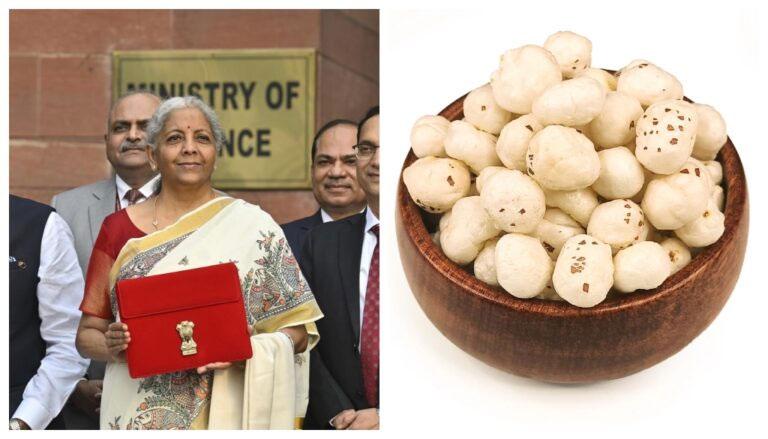FM Nirmala Sitharaman announced the creation of Makhana Board in Bihar in the Union Budget 2025. As per reports, Makhana Board will be established in Bihar to improve processing, value addition of this lesser-known protein-rich food item. The board will provide handholding and trade related technologies. It will also work to ensure farmers receive benefits of all relevant government schemes.
The Government has proposed the creation of new tariff lines for makhana products and rice, categorising them based on process and variety. These changes, introduced under the Customs Tariff Act, 1975, will come into effect from May 1.
In 2022, ‘Mithila Makhana’ received the Geographical Indication (GI) tag, certifying its unique regional characteristics, similar to Darjeeling tea or Mysore sandalwood.
Primarily cultivated in nine districts of northern and eastern Bihar—Darbhanga, Madhubani, Purnea, Katihar, Saharsa, Supaul, Araria, Kishanganj, and Sitamarhi—makhana farming in the region contributes to nearly 90% of India’s production. However, despite its dominance, Bihar has struggled to capitalize on Makhana’s growing market due to a lack of food processing infrastructure and export facilities. The state also does not have an airport with a cargo terminal, hindering direct exports.
The newly established Makhana Board, with an allocated budget of Rs 100 crore, will focus on training farmers and making them export-ready, promoting investment in food processing, as well as facilitating the development of export infrastructure.
The announcement is also seen as a strategic move ahead of the Bihar Assembly elections. Chief Minister Nitish Kumar has faced criticism for the state’s limited economic growth beyond infrastructure development. Unemployment and migration were key concerns during the recent Lok Sabha elections, and this initiative is expected to address some of these challenges.
The move also holds significance for the Mallah community, which is heavily involved in makhana farming. Although forming only 2.6 percent of Bihar’s population, the community’s concentration in North Bihar gives them a significant electoral influence, with a potential 6 percent vote share in certain constituencies. Historically aligned with social justice parties, the community has been courted by multiple political parties in recent elections due to their ability to mobilise other lower castes.












